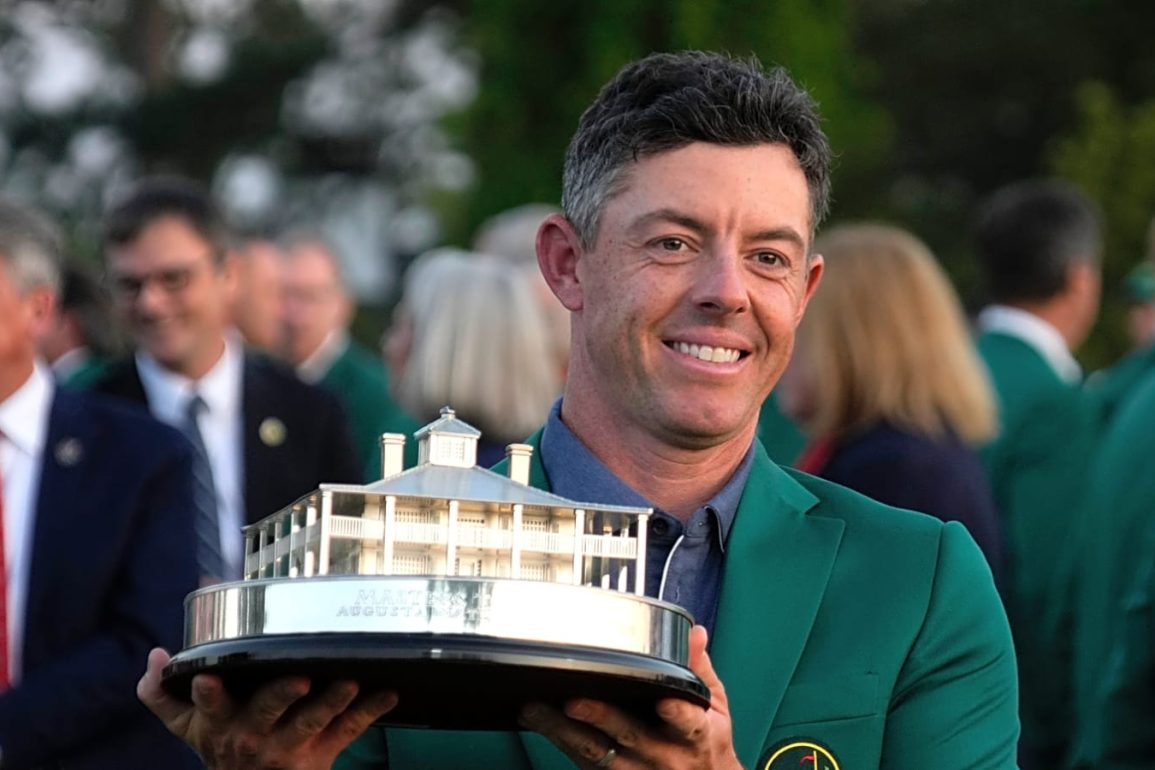It might have been simpler. Perhaps it ought to have been simpler.
But what would have been lost if Rory McIlroy had won the Masters with ease, if he had employed all of his powers on those closing nine holes at Augusta National and glided to victory ?
McIlroy got something more, but he lost a coronation. He prevailed in a way that was appropriate, true to himself, and, paradoxically, more motivating.
Athletes compete to see who can run the fastest, jump the tallest, or, in this case, shoot the lowest score. Many people watch sports only to witness strength demonstrations but this is athletics at its most basic level.

But McIlroy has always aimed to transcend his physical prowess in his quest for greatness. Despite the potential for criticism, McIlroy has aspired for his career to showcase more than just big drives and precise iron shots. He desired for it to be an image of humanity.
And on Sunday, it was just that.
McIlroy displayed the resilience that is his greatest asset as he stumbled, occasionally bumbled, and was imperfect as he got closer than ever to reaching the dream that has plagued him for ten years.
And he was able to turn to his 4-year-old daughter, Poppy, after he had won in this way, wipe away his tears, and tell her, “Keep coming back, keep working hard, and if you put your mind to it, you can do anything.”
Although he had once led by 5 on Augusta National’s second 9, McIlroy needed an extra hole to win his Masters, and his friend Brad Faxon, winner of 8 PGA TOUR titles, described those final holes as “the best 2 hours of sports” he’d witnessed. Poppy McIlroy had witnessed the fruit of her father’s unwavering optimism just minutes earlier when he collapsed to his knees on the 18th green at Augusta National, sobbing so hard that it shook his body after that final putt fell and the journey was over.
On Sunday, McIlroy made a lot of mistakes, but he also seized the opportunity enough times to win in the end. On hole 13, he bogeyed the next hole after throwing a wedge into the water. He then missed short putts for eagle and birdie that would have given him ample margin for an easy victory after making excellent iron shots.
He lost his one-shot lead on the final hole after hitting a wedge into a bunker on 18 after birdieing No. 17. He finally defeated Justin Rose on the first playoff hole by hitting a wedge to 2 feet from a position in the fairway not far from where he had been standing minutes before.
Tommy Fleetwood said, “It’s like 9 holes of Rory McIlroy’s career in a nutshell.” Shane Lowry stated the triumph came in “a very Rory McIlroy way of doing it.”
“You simply need to keep moving forward, keep working hard, and have faith that your day will come, regardless of what occurs or how awful you are feeling.” Lowry explained.
If McIlroy’s Masters is a show of gifts that only a select few can understand, or if Sunday is a six-shot victory, then the message isn’t as apparent. However, everyone in the audience is aware of what it’s like to make errors, lose hope, and clumsily follow a desire. In the end, McIlroy demonstrated that it is possible to keep getting up and going.
A significant victory would have been more favorable in the record book. Many viewers on Sunday would also be disappointed by a star who nearly lost such a significant lead. They will laugh at an unexplainable bogey from the center of the 18th fairway, at the key putts that continued to go past the hole, and at a fairly straightforward wedge shot that was driven into the lake.
These individuals don’t understand McIlroy, his allure, or why his victory ultimately struck a chord. Even though he became the 6th player to win the career Grand Slam on Sunday, his accomplishment went beyond simply playing excellent golf. It was evidence that even the most crippling defeats don’t have to be the end of the narrative and a testimony to tenacity and resilience.
At 11 and 13, respectively, there was the bogey and the unexplainable double. On that swing, he appeared weak, but on the 15th, he showed courage by hooking his 7-iron shot around the woods and within 6 feet of the hole. However, he failed to hit a 9-footer for birdie on 16 and missed the eagle putt. That meant that with 2 holes left, he was still tied for the lead.
However, he had a one-shot lead going into the last round after hitting an 8-iron to 2 feet on hole 17. Even Scottie Scheffler’s close relatives were looking over the grandstand’s netting by the 17th green in an attempt to get a view of McIlroy’s ball. However, that wasn’t the decisive factor. Not after McIlroy made par from a greenside bunker and missed the 18th green with a wedge to tie Rose.
However, McIlroy struck his approach in the playoff stiff, two yards from where he stood in regulation, preventing a catastrophic collapse. In what he called a “outpouring of relief,” he collapsed to the ground after the short putt was made.
“It’s so hard to keep patient. It’s so difficult to keep returning year after year, giving it your all, and still failing to finish. I believed there were points on the back nine today. Have I missed this one more time? But once more, I’m quite pleased of myself for responding with some clutch shots when necessary.” McIlroy said.
We can all learn from McIlroy’s victory at Augusta National, which was a reward for his perseverance.



